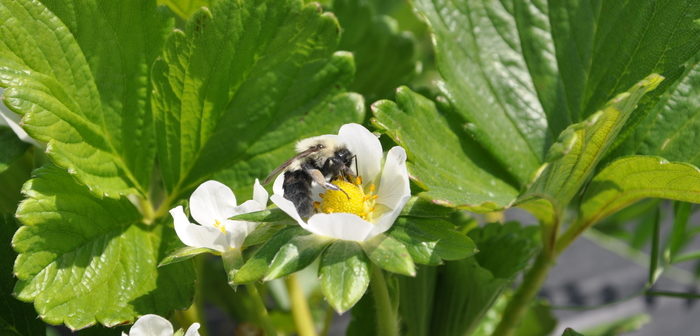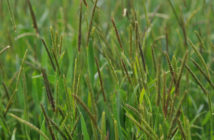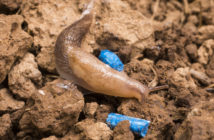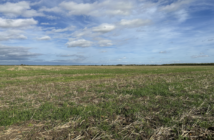Trial results by Bee Vectoring Technologies International Inc have proved that its system for using bees to transport an all natural product (BVT) is effective and efficient for sunflower growers to use for disease control and improve yields. The results validated the technology, quantified hive distribution needed to achieve satisfactory Sclerotinia head rot control (in both disease incidence and severity), and measured increased yield results and reduced sclerotia contamination. Data collected in the first year has also enabled BVT to identify the segments of the sunflower industry that have the greatest potential for the Company’s system: seed production and higher-value contracted oil and confectionary production.
In short, the system has commercially reared bees walk through a tray of a light powder containing a naturally occurring fungus before leaving their hive. As they carry out their natural pollination process, they drop spores on each plant they visit causing the plant to block diseases. This approach has earned landmark US EPA approval as the first bee-delivered crop protection product. It is completely natural, uses no water and is harmless to bees, animals, and humans.
“Sclerotinia head rot is a major challenge for sunflower producers and has been identified as a high priority by the National Sunflower Association,” said Sherri Tedford, Laboratory and Field Testing Manager at BVT. “First year trial data from two sites indicate BVT reduced incidence and severity of Sclerotinia head rot by up to 62% over the control plots and increased yield by about 15%. BVT-treated sunflowers also have less sclerotia contamination (down from 6.1 and 7.4 % in the control plots to 3.1 and 3.3 % in the BVT-treated plots), well below the 4% maximum level allowed for processing seeds into oil for human consumption. This is important for growers, as seeds for human consumption can be sold for a higher price than seeds for other purposes, such as animal feed.”
BVT will continue the state-funded trials through the next two growing season, starting this August, to further refine recommendations for hive/dispenser numbers and placements, and further strengthen the BVT value proposition and ROI for growers. Originally approved for two years, these state-funded trials have just been extended for an additional third year.
“The disease management practices data from the NDSU trials won’t just help producers in North Dakota, but those in neighbouring states (Minnesota, Montana, and South Dakota) and provinces (Manitoba and Saskatchewan) as well,” continued Mr. Malik. “And with minor adjustments, they will be applicable to producers in other parts of the world, increasing our potential scale to drive sustained growth through revenue diversity.”




